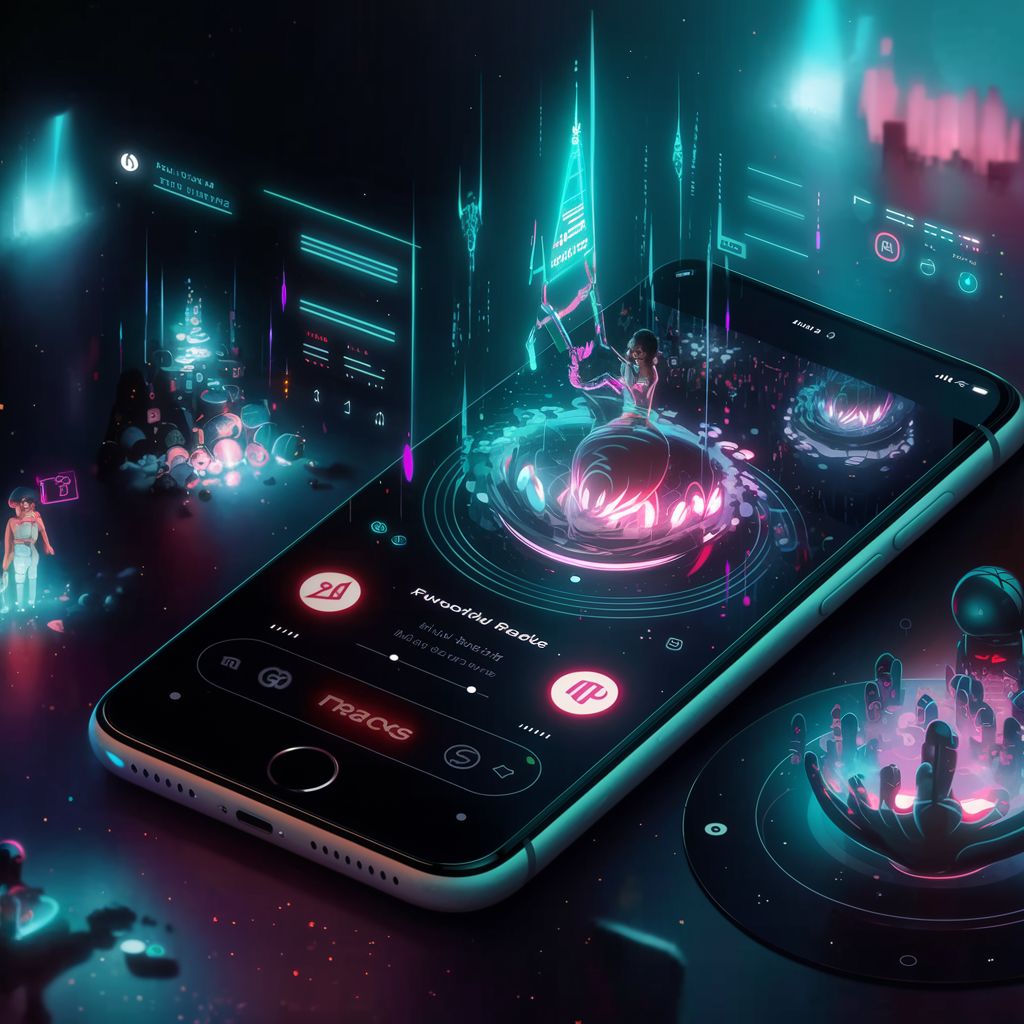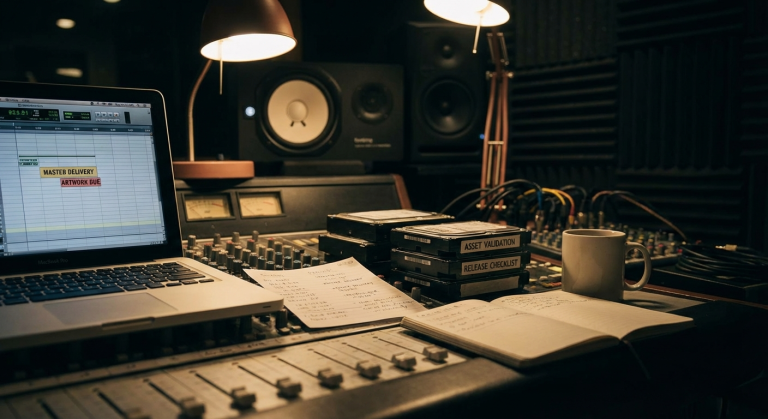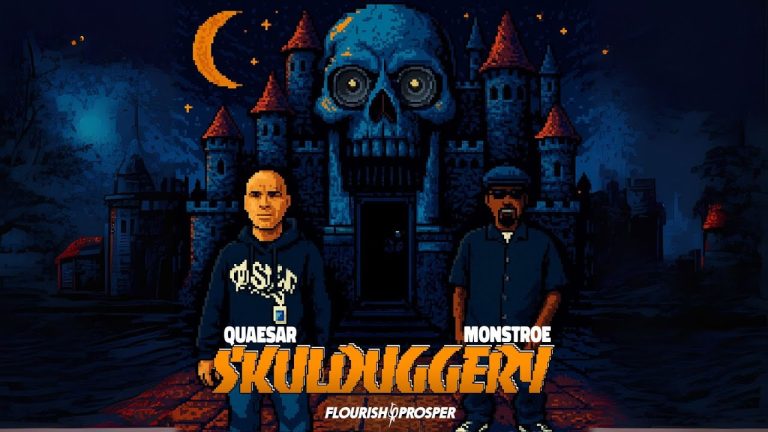Introduction to Augmented Reality in Music
In the realm of cutting-edge technology, augmented reality (AR) is rapidly emerging as a pioneering innovation, transforming everything from gaming to healthcare. But perhaps one of the most compelling and lesser-known applications of AR is in the music industry.
What Does AR Mean for Music?
Augmented Reality overlays digital information on real-world elements. In the context of music, augmented reality can enhance the listeners’ experience, offering interactive album covers, live performances, and music lessons. The essence of AR lies in its ability to transform static, one-dimensional music consumption into a multisensory, immersive experience. As a result, listeners are not just hearing the music; they are also seeing, feeling, and interacting with it.
The Intersection of AR and Live Performances
One of the most intriguing ways AR has been used in music is through the creation of stunning visual displays during live concerts. Musicians and artists leverage AR to give their audiences an experience that transcends the standard audio performance. For instance, concertgoers can use AR-enabled apps or devices to see virtual stage effects, animations, and artwork that sync to the rhythm of music, providing a truly memorable event.
AR in Music Education and Learning
Beyond entertainment, augmented reality has also shown substantial promise in music education. AR can provide a hands-on approach to learning music by showcasing virtual representations of instruments, notes, chords, and rhythms. This technology can guide beginners through the process of learning a new instrument, assist in understanding complicated musical concepts, or even aid in composing a piece of music. The integration of AR in music apps has opened up a plethora of opportunities for both casual listeners and committed musicians, creating unique, interactive experiences that were previously thought to be impossible.
The Evolution of Interactive Music Apps
Starting Point: Early Stages of Interactive Music Apps
In the beginning, interactive music apps were simple and provided only basic functionalities. Some of these initial apps featured options to tap along to a rhythm, create simple tunes using a virtual keyboard or emulate musical instruments. While they were entertaining to use, they lacked a personalized or immersive environment that could engage users on a deeper level.
Progression: Incorporation of Augmented Reality (AR)
The groundbreaking arrival of augmented reality technologies marked a significant leap in the evolution of interactive music apps. The use of AR allowed developers to go beyond conventional app designs and integrate features that transform the user’s environment into a dynamic musical playground. Users could now interact with virtual elements superimposed on their real-world settings, providing a unique, immersive music experience. A good example is the AR piano learning app, which overlays virtual piano keys onto a user’s actual desk. This brought a whole new level of interaction, allowing users to learn and play music in an enhanced reality.
Current State: Personalization and Immersive Experiences
Today’s interactive music apps are not just about offering an augmented reality interface but also personalizing the experience for each user. Modern apps use complex algorithms to analyze a user’s musical taste and preferences, creating a tailor-made music journey. In addition, artists and music companies are leveraging AR technology in apps to provide exclusive content such as behind-the-scenes footage, real-time concert experiences, or interactive music videos, bringing fans closer than ever before to their favorite music. It’s clear that the fusion of music and augmented reality has opened up infinite creative possibilities, taking the concept of ‘interactive’ to new heights.
How Augmented Reality Enhances User Interaction
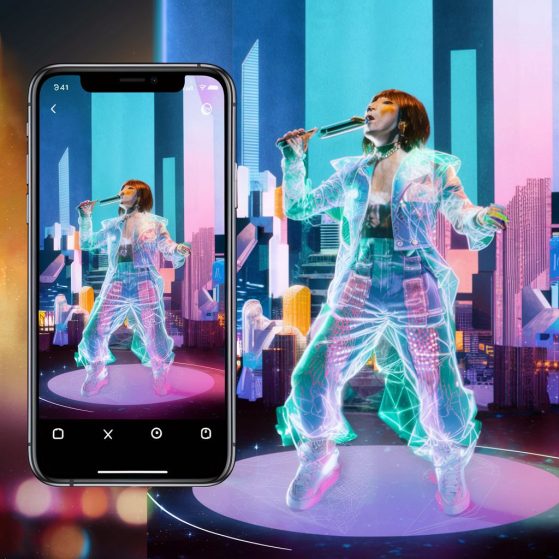
Boosting Engagement Levels with Augmented Reality
Augmented Reality (AR) boosts user interaction significantly by creating immersive and interactive experiences. Instead of just listening to music, users can be part of a more comprehensive experience that incorporates visual elements. For instance, using AR, users can see virtual concerts right in their living room. This not only enriches the experience but also increases the users’ engagement levels.
Facilitating Interactive Learning
AR apps have revolutionized the learning process for music enthusiasts. Traditional methods of learning music often involve reading from books or watching videos. AR augments this process by incorporating interactive elements into the learning process. For example, an AR-based piano app will not only show the keys you need to play but will also provide real-time feedback on your performance. This interactive element fast-tracks the learning process and makes it more engaging.
Enhancing Social Interactions and Community Building
Augmented reality extends beyond individual user interaction and plays a vital role in enhancing social interactions. Music is a social art form that thrives on communal participation. With AR, users can share their musical creations with others in the form of augmented content. Users can participate in virtual jam sessions with other musicians worldwide, leading to a stronger and more vibrant music community. The shared experiences enabled by AR foster a sense of connection and camaraderie among users, thereby adding a new dimension to the music experience.
Exploring Different Augmented Reality Music Apps
Immersive Music Experiences with AR Apps
The advancement of augmented reality (AR) technology is revolutionizing the music industry, turning it into a more immersive and interactive space for music lovers. AR music apps allow users to experiment with music in unique ways by overlaying digital components onto the real world.
One noteworthy application is Firstage, which uses AR technology to display virtual live performances of bands and musicians in the palm of your hand. It’s an exciting way to enjoy concerts from your favorite bands without the crowd.
Another game-changer in this area is the AR Music Kit, which allows users to create their own immersive musical experiences. This app can transform any flat surface into a playable instrument that generates sound when interacted with. The AR environment adds a new level of fun and creativeness to making music.
Unleashing Creativity with AR Music Education Apps
Augmented Reality has also made its presence felt in the realm of music education. Apps like Music Everywhere utilize AR technology to provide an immersive learning experience for beginners learning to play the piano. By overlaying visual cues onto a physical keyboard, the app helps users learn chords and melodies in a fun, interactive manner.
Moreover, Soundstage VR takes AR music teaching one step further by providing a virtual reality platform for composing music. Users can experiment with a broad range of virtual instruments, synthesizers, drum kits, and more, all within a 3D environment, challenging traditional boundaries of music creation and fostering innovation.
Enhancing Artist-Fan Engagement with AR Music Apps
AR music apps are not just limited to listening or creating music. They are also actively transforming how artists connect with their fans. Gorillaz, the British virtual band, launched an app that superimposes elements from the band’s music videos onto the user’s surroundings.
Similarly, the Swedish tech company Spinview utilizes AR in their music video app that gives fans the ability to interact directly with a 360-degree video of their favorite artist, thereby taking fan engagement to an entirely new level.
In conclusion, AR technology is totally reshaping the music scene, from how we experience and create music to how we engage with artists. The aforementioned AR music apps are just some examples of this revolution.
The Impact of Augmented Reality on the Music Industry
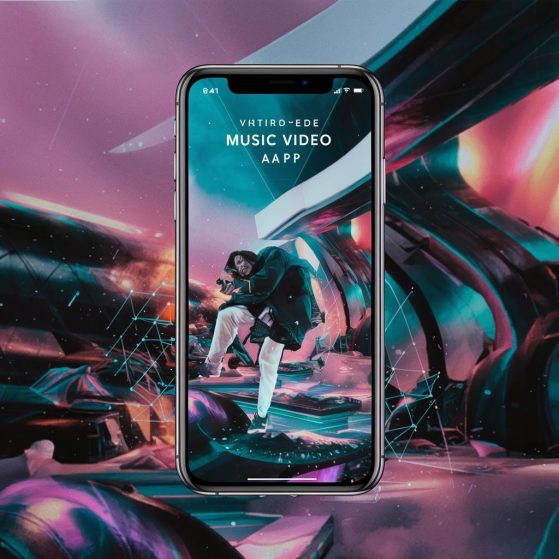
Revolutionizing Live Performances
Augmented Reality (AR) is creating a paradigm shift in the way audiences experience live musical performances. Concert organizers, in collaboration with app developers, are leveraging AR to enrich music festivals and concerts. Through AR mobile applications, attendees can have interactive experiences, such as viewing 3D holograms of performing artists, accessing real-time song lyrics, or exploring virtual landscapes that correlate with the rhythm and melody of the performance. This blend of physical and digital realities not only amplifies the attendees’ sensory eperience, but also fosters a deeper connection between the artist and their fans.
Enhancing Music Learning and Composition
AR technology is diffusing boundaries in music learning and composition as well. By overlaying virtual information onto physical instruments, AR-based apps are streamlining the learning process for beginners and even experienced musicians. For example, finger placements for complex chords can be displayed on a virtual guitar fretboard, easing the learner’s journey. Similarly, for composers, AR provides a three-dimensional canvas to visualize and manipulate sound in space, thereby catalyzing unique arrangements and soundscapes.
Shaping Music Marketing Strategies
The influence of Augmented Reality extends to music marketing and promotion too. AR offers innovative ways for artists to promote new releases or upcoming tours. By scanning posters, album covers, or QR codes via specialized apps, fans can access immersive promotional content like behind-the-scenes footage, exclusive interviews, or sneak-peaks of unreleased tracks. These immersive, engaging marketing tactics not only generate buzz around the product, but also enhance brand affinity by offering fans an intimate glimpse into their favorite artists’ world.
Future Possibilities of Augmented Reality in Music
Potential Applications in Live Performances
Augmented Reality (AR) holds immense potential for transforming the landscape of live music performances. By overlaying digital imagery in real time, AR can provide concert attendees with a more immersive and interactive experience. It can bring about holographic projections of artists, a spectacle that can be game-changing for the live music industry. This might particularly appeal to international fans who cannot physically attend concerts. AR can also be used to enhance stage setups, making them visually stunning and creating a unique, memorable experience for the audience. Additionally, bonus content such as behind-the-scenes footage or band interviews could be accessed by fans during the show through their AR devices.
Amplification of Music Learning and Creation
In the realm of music education, AR has the potential to revolutionize learning mechanisms. Futuristic applications may include virtual music tutors, where learners can watch and mimic the movements of holographic musicians. Furthermore, AR could be used to overlay sheet music onto the user’s field of view, providing an innovative and engaging way for beginners to learn how to read music.
In terms of music creation, AR technology could facilitate collaborations between artists regardless of their geographical location. Musicians could record music in real-time with each other, giving rise to new and diverse styles of music.
Enhancing User Experience in Music Apps
AR technology in music apps can take user experience to a whole new level. Imagine scanning a physical album cover and having the band’s music videos or latest interviews pop up, or perhaps using an AR-powered app to create a 3D visualization of a song that changes as you modify the tune. These are just two possibilities for how AR can significantly elevate the user’s interaction with music apps.
Moreover, fans could use these apps to unlock exclusive content, purchase merchandise, or even interact with their favorite artists in a virtual space. The potential for personalized, immersive experiences that AR can offer is unmatched and likely to attract more users as the technology continues to evolve.
Concluding Thoughts on Augmented Reality in Interactive Music Apps
The Impact of Augmented Reality on Music Applications
AR (Augmented Reality) has demonstrated its potential to revolutionize the music application industry. Its unique capabilities allow users to interact with music in an unprecedented manner, blurring the line between the virtual and physical world. It enriches the audio experience by adding visual elements, hence offering a multi-sensory musical experience.
The implementation of AR in music apps not only transfigures the user interface but also intensifies the level of engagement. By enabling users to manipulate and customize their own musical content, it promotes active participation rather than passive consumption. This marks a significant shift in how users connect with music.
Lingering Challenges and Future Potential
However, the integration of AR in music apps is not devoid of challenges. Issues, such as device compatibility, user privacy, and the need for high-end hardware, are among the possible drawbacks. But with relentless technology advancement, these obstacles are likely to be overcome in due time.
On the horizon, the future of AR in music apps appears promising. As technology matures, we can anticipate more immersive and personalized experiences. AR could even pave the way for new forms of musical expression and creativity. As such, it is safe to predict that AR will play a central role in shaping the future landscape of music applications.
Final Note: Augmented Reality, A Musical Game-changer?
In conclusion, augmented reality presents a transformative pathway for music apps. Although still in its early stages, its impact is already noticeable. By blending the physical and digital worlds, AR delivers a distinctive, interactive musical experience that traditional forms simply couldn’t match.
While it faces certain hurdles, the prospect of overcoming them and forging ahead is certainly plausible. As AR continues to merge with music apps, one cannot help but be excited about the future possibilities it holds. Despite the challenges, it seems clear that AR has the potential to innovate the music industry to new heights. It might soon become an indispensable part of our daily musical encounters, redefining the way we enjoy and interact with music.
Looking for a trusted and knowledgeable agency to help market your music career?
Contact us at + 1 626 872-5151 or info@flourishprosper.net
Or Checkout our website at flourishprosper.net

